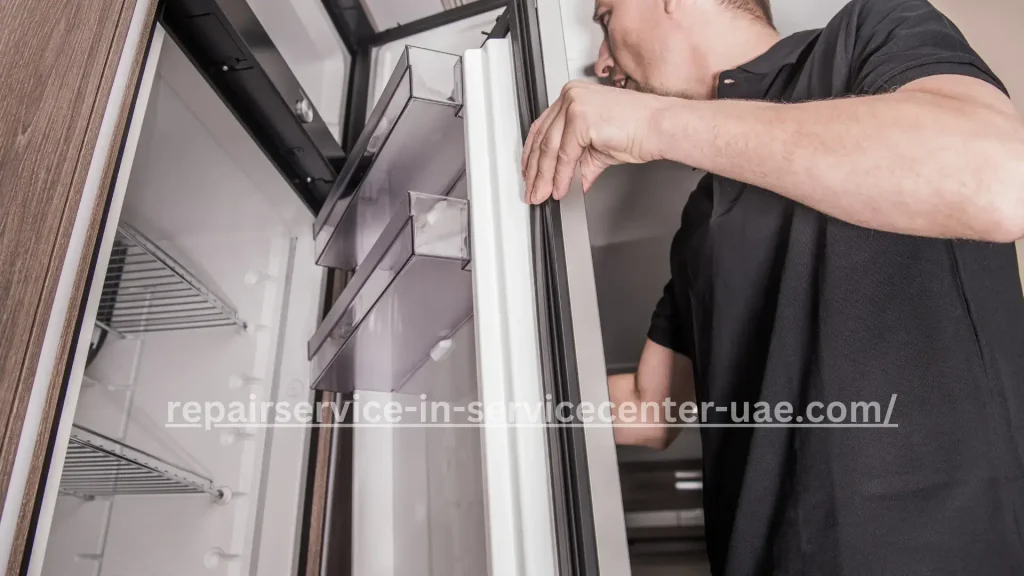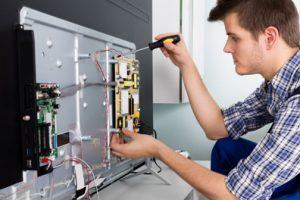A noisy refrigerator can be a source of constant annoyance in your home. The good news is that many of these noises can be identified and resolved without professional help. This guide will walk you through the steps to troubleshoot and fix your noisy refrigerator, ensuring a quieter and more peaceful kitchen environment.
Common Causes of a Noisy Refrigerator
Understanding the common causes of a noisy refrigerator is the first step in troubleshooting. Here are some typical culprits:
- Loose Parts: Over time, various components inside the refrigerator can become loose. This can include screws, bolts, or other fasteners that secure different parts.
- Fan Issues: The evaporator and condenser fans can sometimes make noise if they are dirty, obstructed, or faulty.
- Compressor Problems: The compressor is a critical part of the refrigerator. If it’s malfunctioning, it can produce loud noises.
- Ice Maker: If your refrigerator has an ice maker, it can sometimes produce noise when ice is being made or dispensed.
- Vibration: If your refrigerator is not level, it can vibrate, causing noise.
By identifying the specific cause, you can take targeted action to fix the noise issue.
How to Fix Loose Parts in Your Noisy Refrigerator

Loose parts can be a significant source of noise in your refrigerator. Here’s how you can fix them:
- Identify the Source of the Noise: Open the refrigerator and listen carefully to determine where the noise is coming from. This will help you pinpoint which parts might be loose.
- Check Shelves and Drawers: Sometimes, shelves and drawers can rattle if they are not securely in place. Ensure they are correctly positioned and not loose.
- Inspect the Door: The door of the refrigerator can also be a source of noise. Check the hinges and the seal to ensure they are tight and in good condition.
- Tighten Screws and Bolts: Using a screwdriver, check all visible screws and bolts inside the refrigerator and tighten them if they are loose. Pay special attention to the panels and the compressor area.
By following these steps, you can eliminate many common sources of noise related to loose parts.
Cleaning and Maintaining the Fans
Fans are essential for the proper functioning of your refrigerator, but they can also be noisy if not maintained correctly. Here’s how to address fan-related issues:
- Unplug the Refrigerator: For safety, always unplug your refrigerator before working on it.
- Locate the Fans: There are usually two fans in a refrigerator: the condenser fan and the evaporator fan. The condenser fan is typically located at the back of the fridge, near the bottom, while the evaporator fan is inside the freezer compartment.
- Clean the Fans: Dust and debris can accumulate on the fan blades, causing noise. Use a soft brush or a vacuum cleaner to gently clean the blades and surrounding areas.
- Check for Obstructions: Ensure there are no obstructions around the fans that could cause them to make noise. This includes checking for ice build-up around the evaporator fan.
- Test the Fans: After cleaning, plug the refrigerator back in and listen to the fans. If the noise persists, the fan motor may need to be replaced.
Proper maintenance of the fans can significantly reduce the noise level of your refrigerator.
Addressing Compressor Noise
The compressor is one of the most critical components of your refrigerator. If it’s noisy, here’s what you can do:
- Determine the Type of Noise: Compressors typically make a low humming sound. If the noise is loud or unusual, it could indicate a problem.
- Check the Mounting: Ensure that the compressor is securely mounted. Loose mounting can cause vibrations and noise.
- Listen for Clicking Sounds: A clicking sound might indicate that the compressor is turning on and off frequently, which could be a sign of a faulty start relay.
- Call a Professional: If the compressor itself is faulty, it’s best to call a professional technician. Compressors are complex and require specialized tools and knowledge to repair or replace.
Addressing compressor noise promptly can prevent further damage to your refrigerator.
Troubleshooting Ice Maker Noise
If your refrigerator has an ice maker, it can sometimes produce noise. Here’s how to troubleshoot ice maker noise:
- Normal Ice Maker Sounds: Some sounds are normal, such as the sound of water filling the ice tray or ice cubes dropping into the bin. These noises should be occasional and not overly loud.
- Check the Water Supply Line: Ensure that the water supply line to the ice maker is securely connected and not kinked. A loose or kinked line can cause noise.
- Inspect the Ice Maker Assembly: Look at the ice maker assembly for any loose parts or obstructions. Tighten any loose screws and remove any ice build-up that could cause noise.
- Reset the Ice Maker: Sometimes, resetting the ice maker can resolve noise issues. Refer to your refrigerator’s manual for instructions on how to reset the ice maker.
By following these steps, you can reduce or eliminate noise coming from your ice maker.
Reducing Vibration Noise
Vibration can cause a refrigerator to make noise, especially if it’s not level. Here’s how to address vibration noise:
- Level the Refrigerator: Use a level to check if your refrigerator is properly aligned. Adjust the leveling feet at the bottom of the refrigerator to ensure it is stable.
- Place a Mat Under the Refrigerator: Placing a mat or a piece of carpet under the refrigerator can help absorb vibrations and reduce noise.
- Check the Placement: Ensure that the refrigerator is not touching any walls or cabinets that could amplify vibrations.
- Secure Loose Panels: Inspect the panels on the back and sides of the refrigerator. Tighten any loose screws to ensure the panels are securely attached.
Taking these steps can significantly reduce vibration noise and make your refrigerator quieter.
When to Call a Professional

While many noise issues can be resolved with DIY troubleshooting, some problems require professional attention. Here’s when you should call a professional:
- Persistent Noise: If the noise persists despite your best efforts, it’s time to call a professional. Persistent noise can indicate a more serious problem that requires expert diagnosis.
- Electrical Issues: If you suspect an electrical issue, such as a faulty motor or wiring, call a professional immediately. Electrical problems can be dangerous and should not be handled without proper training.
- Compressor Problems: As mentioned earlier, compressor issues often require professional repair or replacement.
- Warranty Considerations: If your refrigerator is still under warranty, attempting DIY repairs might void the warranty. Check your warranty terms and consider calling a professional to avoid any issues.
Having a professional technician inspect your refrigerator can save you time and prevent further damage.
Conclusion
A noisy refrigerator can be more than just a nuisance; it can indicate underlying issues that need attention. By understanding the common causes of refrigerator noise and following the troubleshooting steps outlined in this guide, you can identify and resolve many noise issues on your own. However, don’t hesitate to call a professional if needed. For further assistance, you can reach out to us at 0567750003. We’re here to help ensure your refrigerator runs quietly and efficiently.







